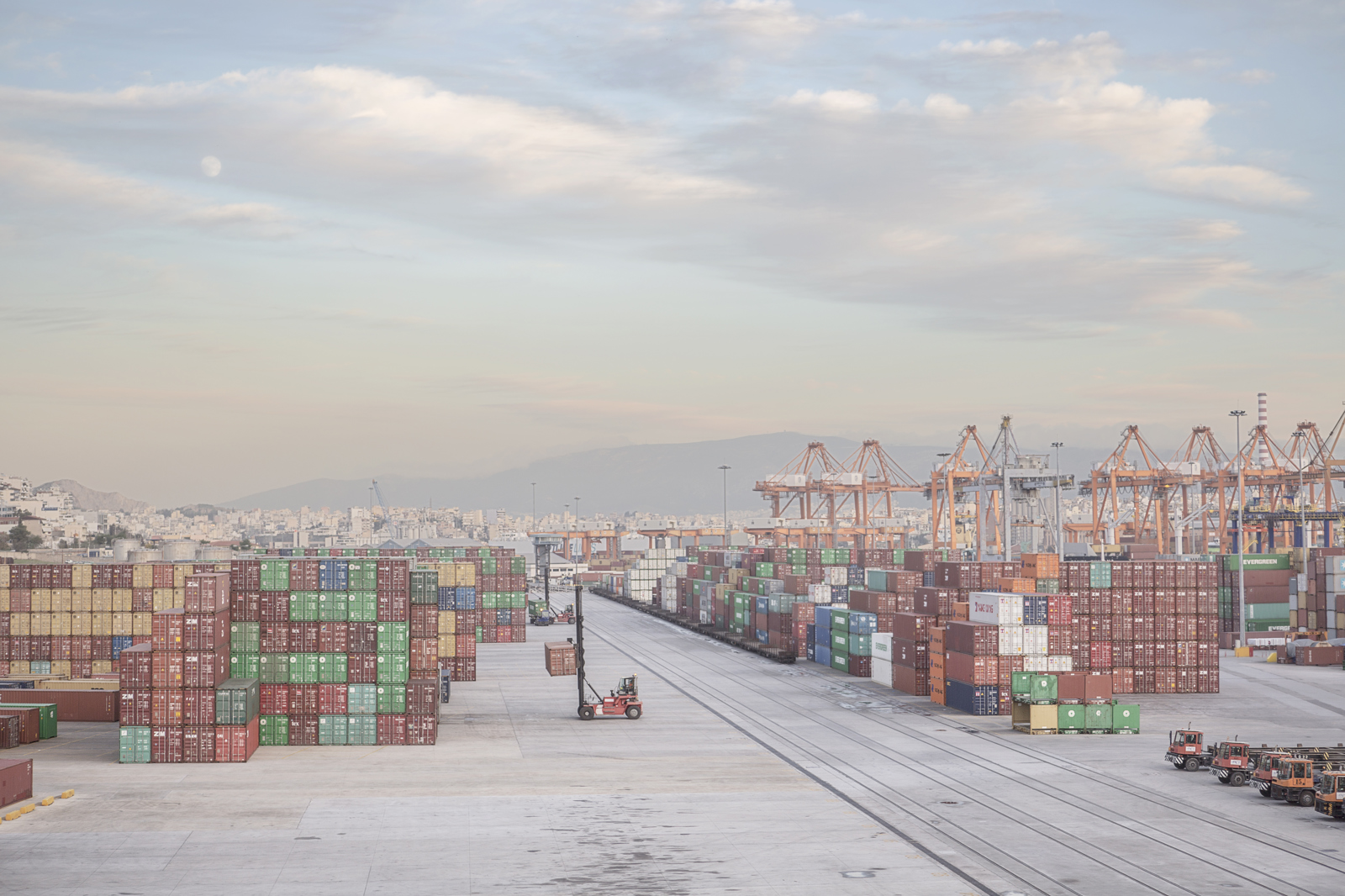
Close to the Greek shipping industry
Greece tops the list of the world’s maritime nations with a fleet worth around USD 100 billion. Maintaining a close relationship with the country’s shipping companies is a vital task for Kongsberg Maritime in Athens.
-
Text:Text and Photo: OVE RONNY HARALDSEN
-
Ove Ronny HaraldsenGroup Communication Manager
Barely half an hour’s drive south of Athens, the Greek flag and the Kongsberg crown fly side by side in the breeze from the Aegean Sea. Kongsberg Maritime (KM) is based in a three-storey building with views of the entrance to Piraeus, one of Europe’s most important ports.
Once inside, we are greeted by Katerina Borbila, who gives us a tour of the building before we go to meet the head of Kongsberg Maritime in Greece.
The first stop is a room containing various ship control systems along the walls. The oldest is a blue AutoChief 4 marked with the NorControl logo. At the other end of the room, more recent models of K-Chief, AutoChief, K-Gauge, KCTS and other systems are lined up on desks and racks.
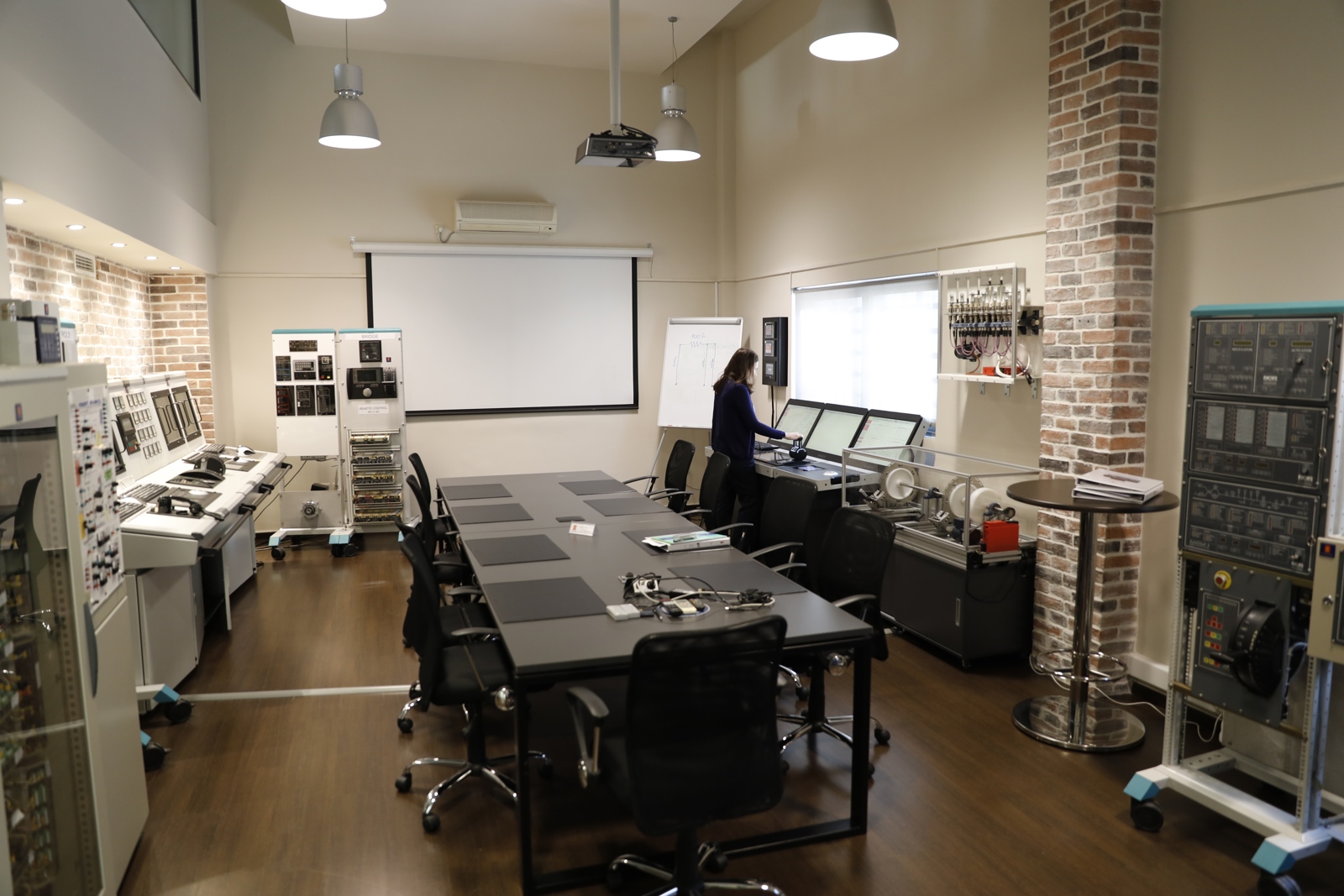
Together with the associated classrooms and a small canteen, this makes up the training department in Athens. Here, crews of Greek vessels receive training on KM’s systems, regardless of whether the products were delivered last year or 30 years ago. One of KM’s strengths as a supplier is that it supports its products throughout their lifetime.
AN ADVANTAGE TO SPEAK GREEK
One floor up are the service engineers and staff responsible for spare parts sales. A small storage facility behind the building holds most of what the engineers need in the way of spare parts on board vessels.
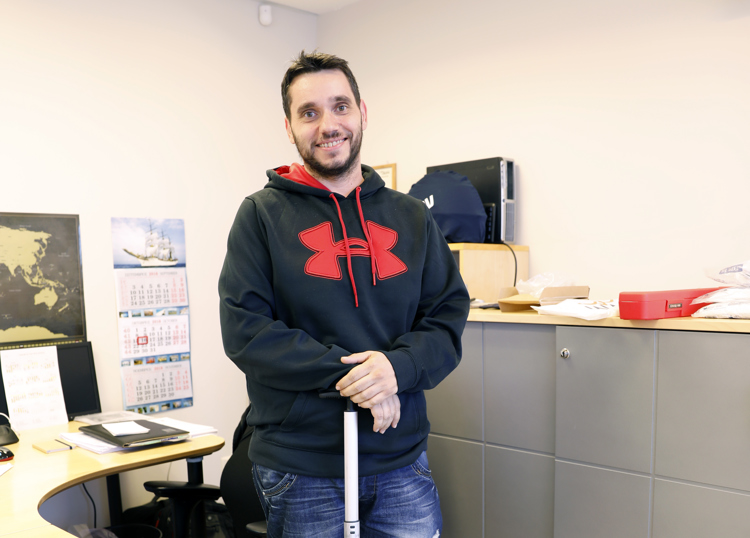
One might think that the service engineers here work on service assignments in the Mediterranean and the Black Sea, but that is far from the case.
They sometimes head out to Southeast Asia or the USA when Greek shipowners want Greek-speaking technicians who they already know on board.
The same goes for spare parts sales. This is a vital operation that generates strong revenues for Kongsberg Maritime from its Athens branch.
Greek shipping companies prefer to call someone they know and can speak to in their native tongue. Spare parts from the entire KM organisation are managed from its Greek office.
CONFIDENCE IN THE GREEK MARKET VITAL
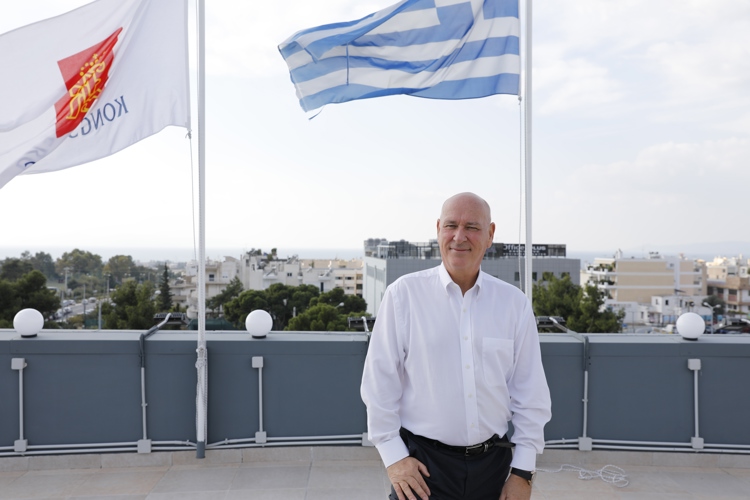
On the floor above, we meet Leif Kristian Weum and the rest of the management team in Athens. Weum explains that they are based in an area in which many Greek shipping companies and maritime enterprises have their head offices.
“We are here to make sure Greek shipping companies have Kongsberg Maritime in mind when they build new ships in China or Korea. We are one of KM’s smallest regional offices, but we receive the most requests for support and spare parts because of our large customer base”, explains Weum.
Weum continues by explaining the characteristics of the Greek shipping market. Customers have a high level of expertise; they know what they want and they are willing to take on considerable financial risk. Business is personal and relationships must be built up over time.
The shipping companies want suppliers that they can rely on and that support equipment that has been delivered in the past. Anyone who fails to live up to expectations gets a bad reputation in an environment where everyone knows everyone else.
CLOSE COOPERATION WITH CHINA AND KOREA
An important KPI for Weum and his colleagues is the number of customers that they meet over the course of the working week. According to Weum, they use what is known as an ‘octopus model’.
The head is located in Kongsberg, while the regional offices form the tentacles of the octopus. The octopus model is a collaborative one that has worked well for many years.

Greece tops the list of the world’s maritime nations with a fleet worth around USD 100 billion. Most of the Greece ship owners have their headquarter here in the Greek capital.
“This means that many stakeholders are involved when the ship is to be specified and contracted out. The international competition is tough and customers demand the very highest quality at the lowest possible price. Decisions are taken quickly in this industry. We must keep up and respond quickly when opportunities arise. Good and frequent communication with our offices in the contracting countries is essential. We can never succeed on our own”, explains Weum.
Today, most ships are built at large shipyards in Asia. As contract negotiations start at the shipyards, local KONGSBERG offices often take the lead. A tender is drawn up and negotiations are initiated.
“During this phase, we work in teams and the communication between our offices in the country in which the shipping company is based and the build country will be crucial for our mutual success”, explains Weum.
GREEK SHIPPING COMPANIES INVESTING HEAVILY
Activity in Athens is primarily aimed at the merchant fleet market, all types of tanker vessels, bulk ships, container vessels and ferries. With such a large shipping market, it is natural that a high proportion of revenues will be generated via the aftermarket.
Marketing, sales and installations of upgrades to older vessels owned by Greek shipping companies represent important activities.
- What does the market look like from your viewpoint here in Greece?
“When we set up our budgets, the forecasts for global commerce represent an important index. Maritime transport has always been, and will always be, the most cost-effective way of transporting goods and raw materials around the globe. The trading of goods globally normally increases year on year”, explains Weum.
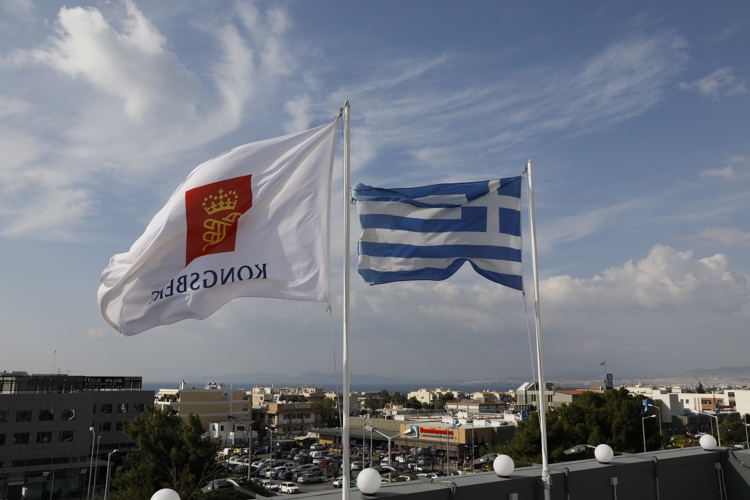
“Here in Greece, it now looks like the shipping companies are positioning themselves in the LNG, tanker and bulk markets. Billions of US dollars are being invested in new tonnage. Most contracts are being placed in Korea and China. Greek shipping companies are investing heavily and sometimes at great risk. These are shipping companies of various sizes”, says Weum.
The large shipping companies own up to 150 ships. The smallest ones own five ships. There are many different forms of ownership, but most shipping companies are owned and run by families.
“Many believe in and hope for growth in the tanker market, which will generate solid earnings in the middle of 2019. There are many different predictions, but I hope these come true and that we will have many good and prosperous years to come in the future due to a hectic period of shipbuilding by Greek shipping companies”, says Weum.
AN IMPORTANT PRESENCE
We head up onto the roof of the office, where Leif Kristian points to Piraeus, where KM Greece had its office until two years ago. KM established itself in Athens in 2011, but has been represented in Greece through a number of agencies since the early 1970s.
Greece has over 800 registered shipping companies and Kongsberg Maritime’s list of customers is long and growing all the time.
Kongsberg Maritime’s biggest competitive advantage is its unrivalled quality and support. On the very day that a ship gets stuck in a port somewhere in the world, help is just a phone call away for the shipping company.

KM Greece has increased its turnover year on year and hopes that this growth will continue.
“It is crucial to have a presence in the world’s largest shipping capital. We now have around 50 shipping companies that are categorised as Key Accounts, but we have over 1,000 customer accounts. There are opportunities for growth here if we deliver what our customers want at the right time and price. The importance of the Greek shipping companies knowing about us, contacting us and having us as a point of contact cannot overstated”, concludes Leif Kristian Weum.
FACTS AND TIMELINE
- Location: Athens
- Management: Leif Kristian Weum, Managing Director
- Products and services: Training, spare parts, services and sales
- Technology: Onboard systems for most types of vessels. Main emphasis on Automation, Propulsion Control, Sensor Systems, Tank Gauging Systems, Vessel Performance Systems, etc.
Timeline:
- 1970s: Autronica and NorControl establish themselves in Greece via agencies.
- 2011: Kongsberg Maritime acquire the agency Dibomar and set up KM Hellas.
- 2013: New training centre for automation and propulsion control systems opened.
- 2016: Leif Kristian Weum takes over as Managing Director after Terje Dyhre
- 2016: Office moved from Piraeus to the current location in Elliniko

